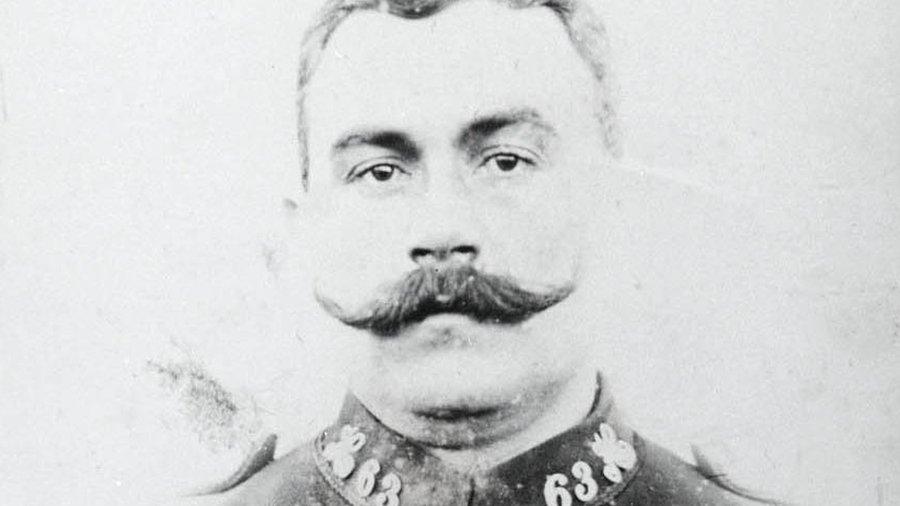The photographer using a Victorian process to picture Scotland
- Published
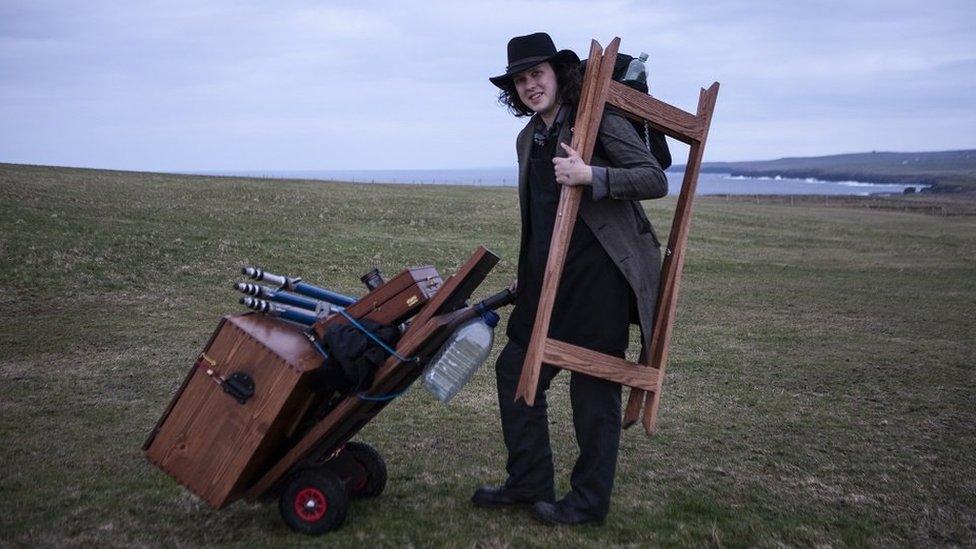
Alex Boyd on one of his early collodion photography adventures
Alex Boyd is using a photographic process developed by the Victorians more than 170 years ago to create images of Scotland and Ireland.
The artist, who was born in Germany and raised in Ayrshire, came across collodion glass plate photography while working at museums in Dumfries and the Hebrides.
The old photographs inspired him to find out how they were made so he could help conserve the museums' images, and make his own.
The process is technically demanding and involves exposing a sheet of glass coated in a mixture of chemicals to make a picture.
Alex says: "When you see those pictures of the old west in America they were made in that exact same way."
Over the last 10 years, Alex has used the process to photograph Scottish and Irish landscapes.
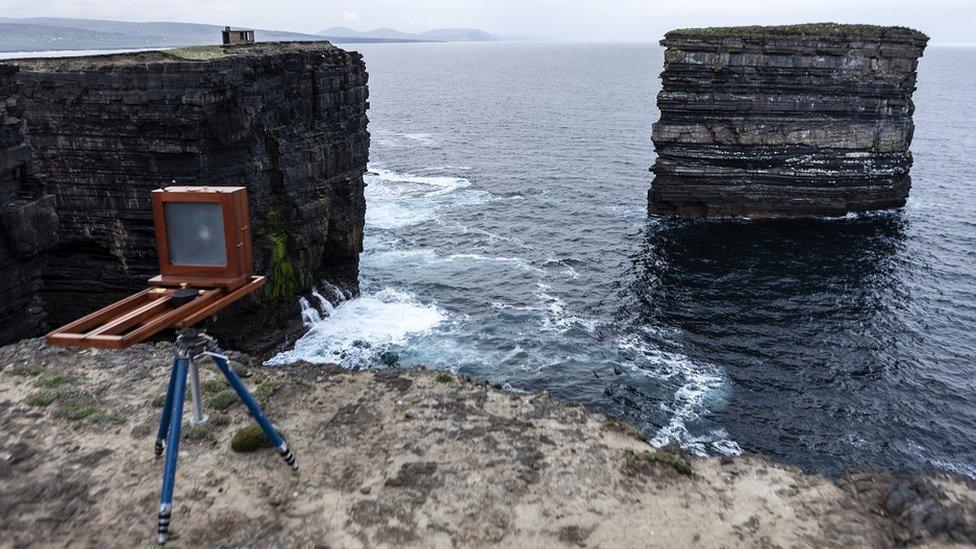
Alex's camera set up at Downpatrick Head in Ireland
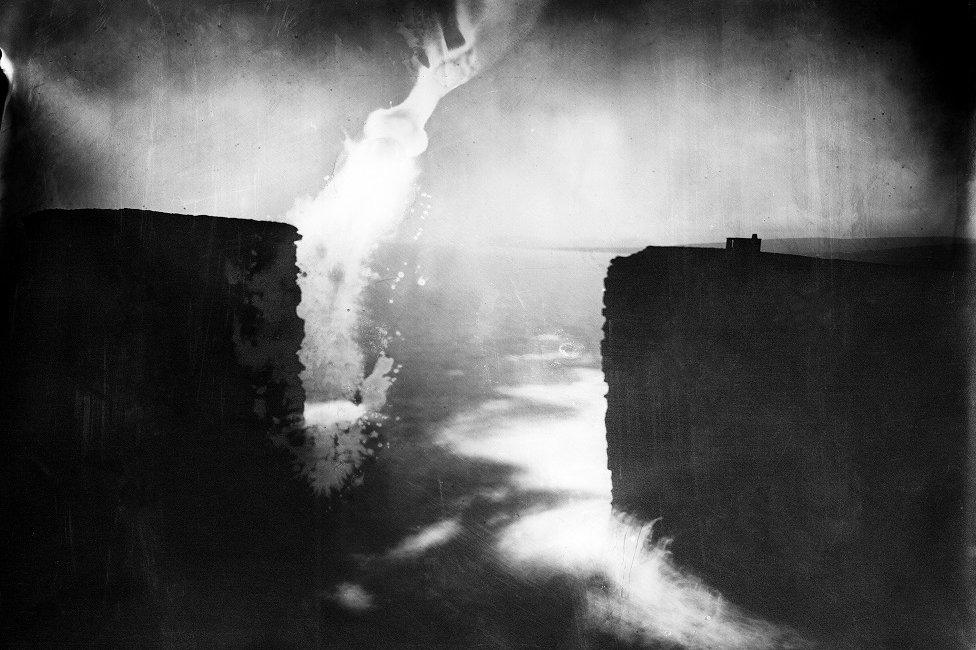
An image Alex made of Dún Briste at Downpatrick Head using the Victorian-era invented photographic process
He says: "I trained myself over six or seven months, often in awful weather, dragging the gear up hills in backpacks to see what I could do.
"This was when I was in my 20s and I just had this bloody-minded attitude that I was going to take these chemicals and cameras up hills and drag them over moors to make pictures."
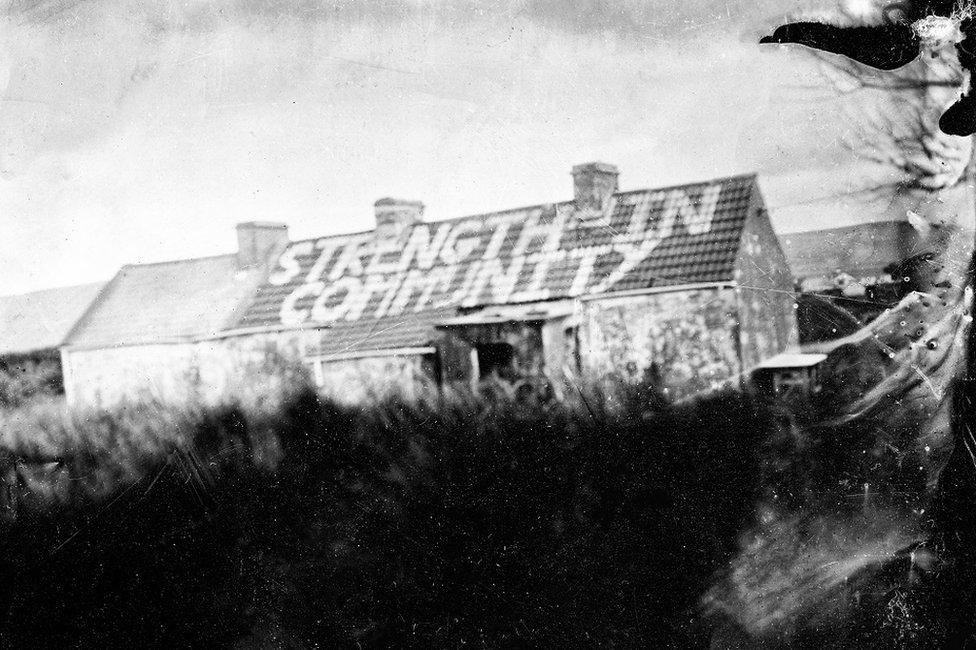
A cottage in County Mayo
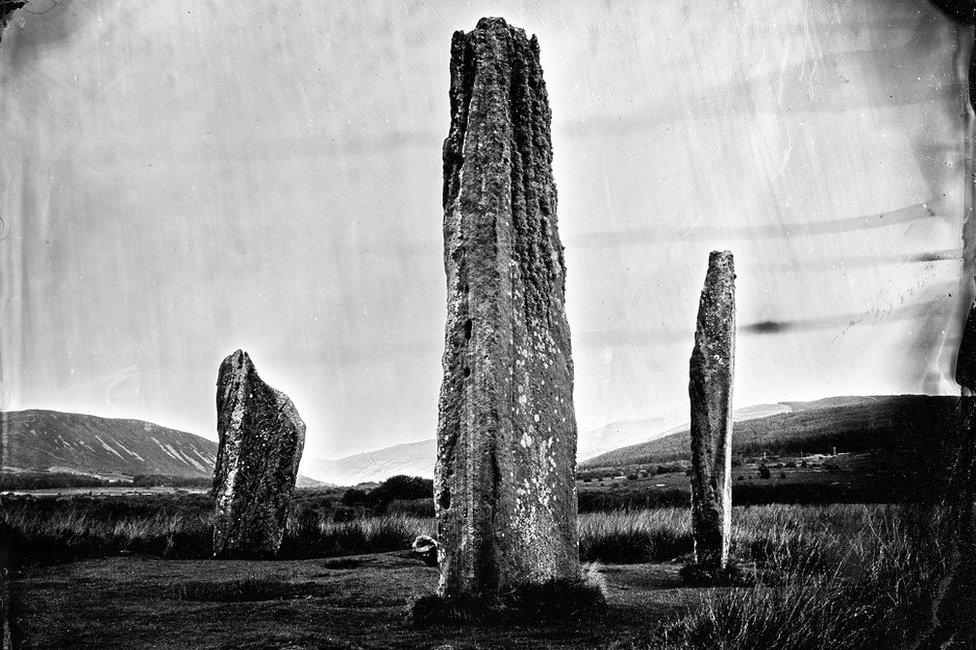
A photograph taken on Machrie Moor in Arran in North Ayrshire
His early work led to the offer from Ballinglen Arts Foundation of a three-month residency on the west coast of Ireland to help him further hone his skills.
Alex says this focus on photography helped him through a period of depression.
"Like a lot of young men there is all this forward motion when you are younger and then you get to your late 20s and wonder what you are doing," he says.
"I come from a working class background and to be offered this residency just hit me. It was imposter syndrome - why should I get this chance?"
Alex's experience of depression has led him to fundraise for mental health charities, including through the publication of a book with Australian musician Nick Cave.
It features pictures of Skye and Cave's song lyrics translated into Gaelic.
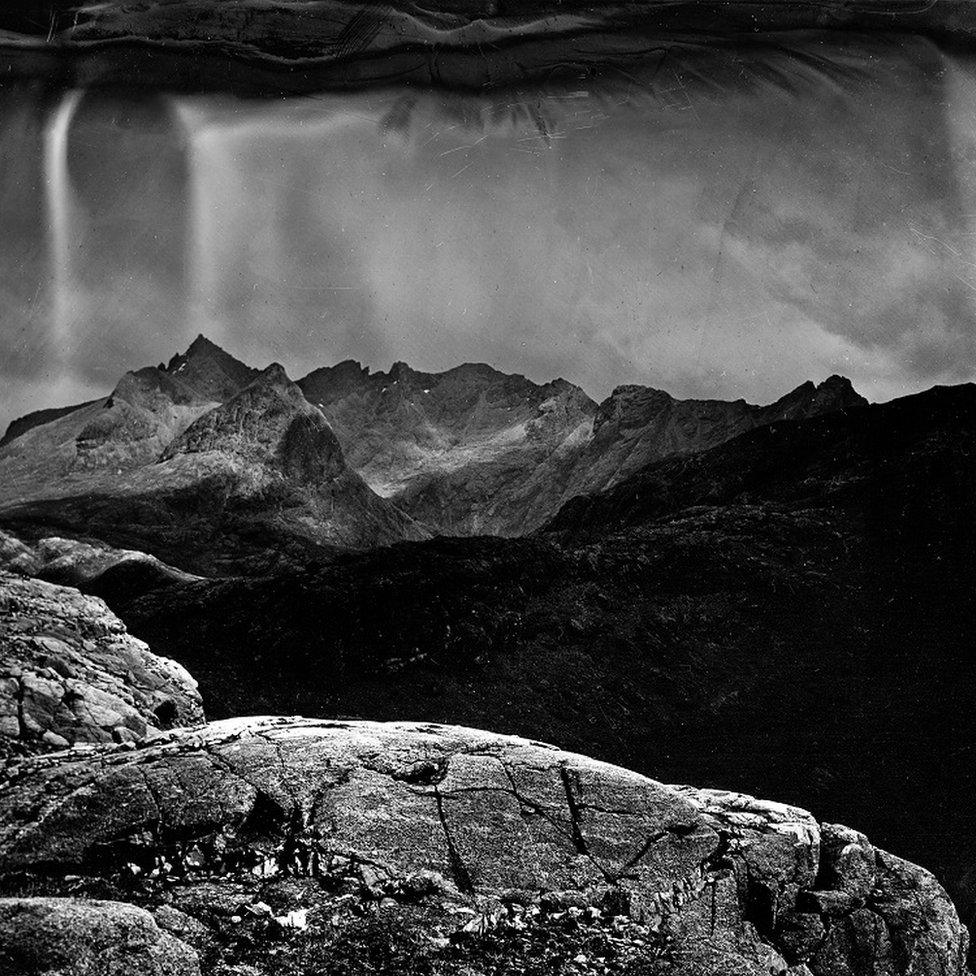
The Black Cuillin in Skye
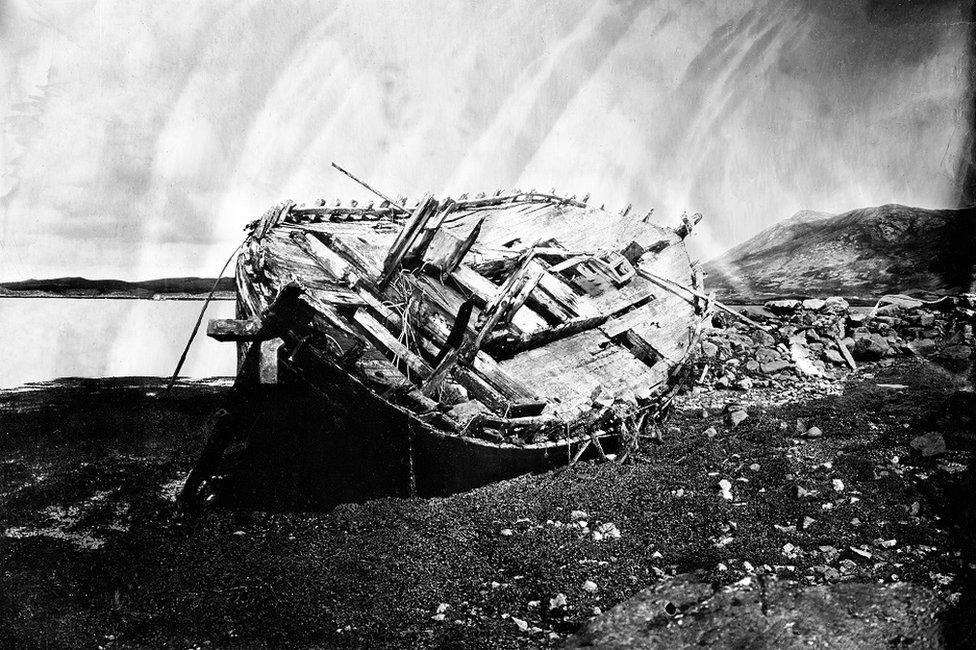
North Uist's Speedwell wreck was the subject of another of Alex's photographs
Following his work in Ireland, Alex was offered a Royal Scottish Academy residency in Skye.
His photography on the island include images made from Sgurr na Stri and Bruach na Frithe in Skye's Cuillin hills.
Locations in the Highlands, Ayrshire and the Western Isles have also been the focus of Alex's work, with his wife and his Royal Marine commando brother helping with the hard work of lugging heavy camera gear into the different landscapes.
He says: "Developing and making pictures in the landscape is kind of incredible because the pictures very much react to the landscape itself.
"I have made images in Glen Etive which have midgies stuck in them because the collodion is like syrup. Other images have bits of grass stuck to them."
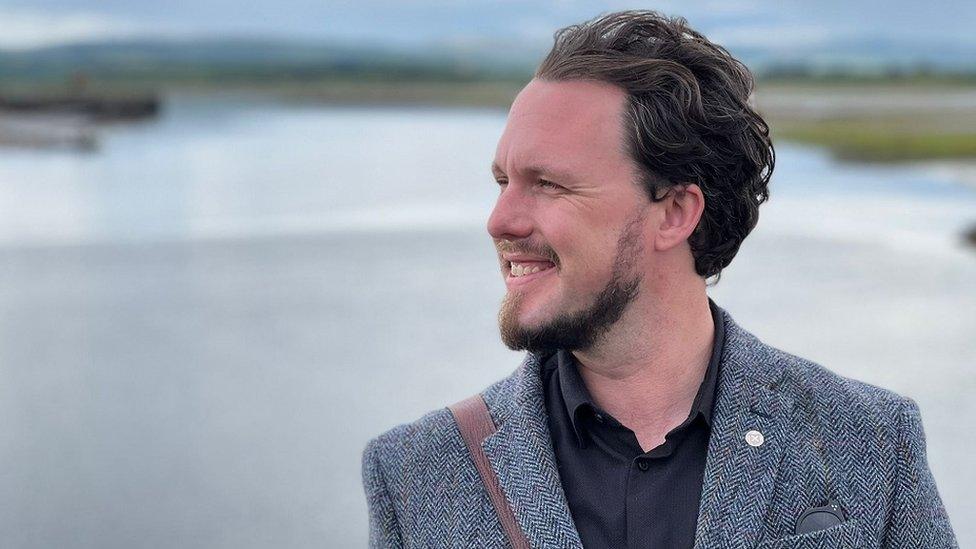
Alex was born in Germany and grew up in Ayrshire
Alex's collodion photographs from the last 10 years have been published in a new book, The Point of Deliverance.
All images copyright of Alex Boyd.
- Published6 September 2021
- Published10 July 2013
